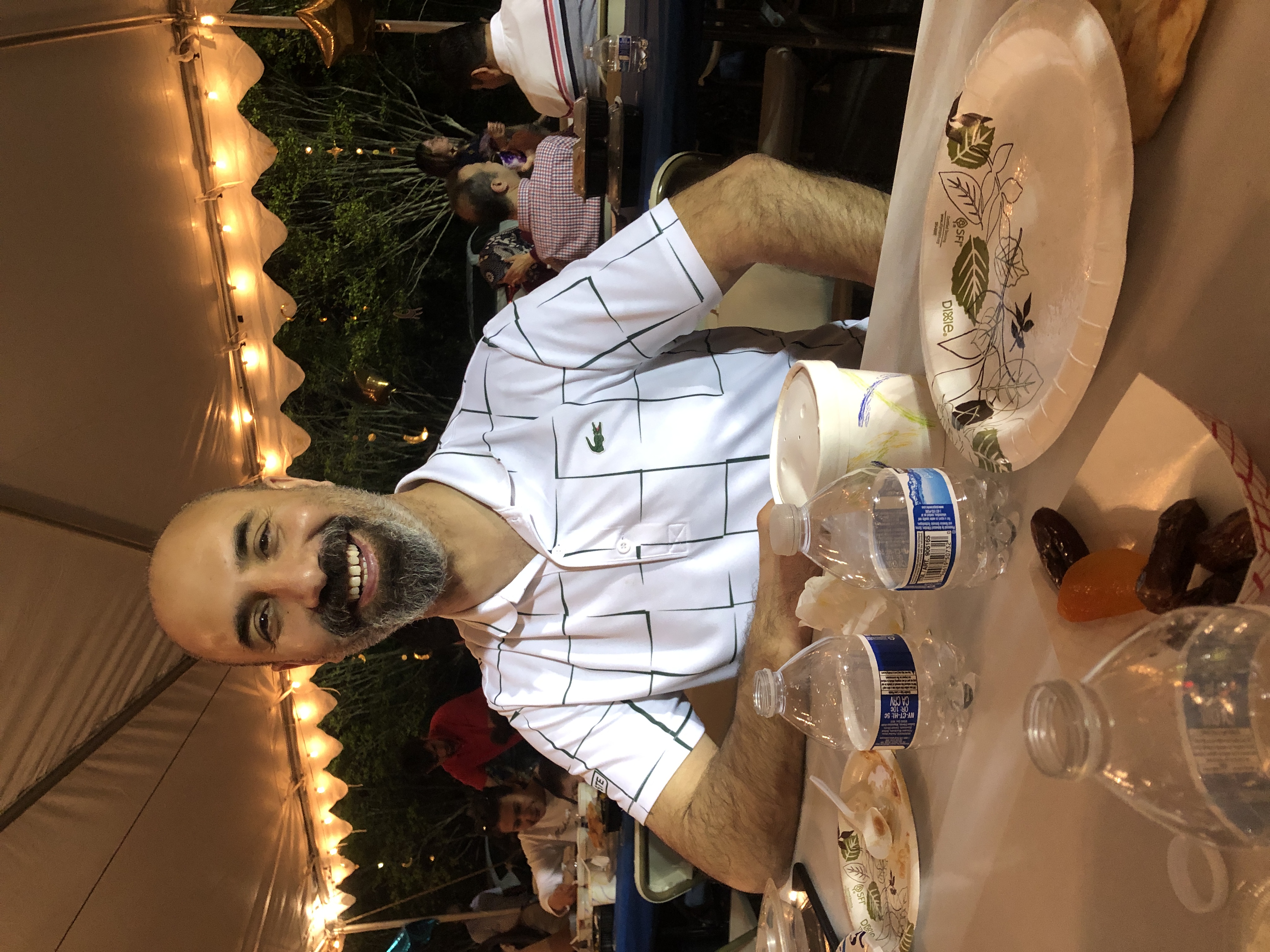Baby Havva and her grandmother, Nihman, from Sterling, were happy just relating to each other during the event, as Havva’s parents enjoyed meeting friends.
Over 1400 free meals were eaten under the Ramadan tent on the evening of April 20; 1200 meals were prepared the day before. AFTA, the American Turkish Friendship Association had organized the “grand Ramadan tent” event on both days, opening it to all in the community, in a kind of grand finale to Ramadan and with the goal of promoting cultural exchange and fostering community relationships.
 Rafet Akman runs the Cozmo One Turkish grocery and restaurant in Chantilly.
Rafet Akman runs the Cozmo One Turkish grocery and restaurant in Chantilly.
One theme of the event was an emphasis on democratic values. An outspoken comment made by a Turkish-American businessman about politics in Turkey, particularly after the earthquakes, prompted one American to ask if he were concerned about talking so openly given the attention the Erdogan government pays to critics. The Turkish-American laughed. “No!” he said, “I’ve been in this country (and Canada ) for 23 years. I have completely lost my fear of talking in public about these things. I do not even think like a Middle Eastern anymore but like an American. I am free to say what I want here. This is why we came to America, that and the opportunities here. The opportunities to be successful are immense; the streets really are paved with gold if you work hard and make good choices.”
More evidence of the emphasis on democratic values at the Ramadan events was the presence of Turkish-American activist, Enes Kanter Freedom, an outspoken critic of authoritarian regimes and former NBA basketball star, and representatives of local members of Congress Gerry Connollly and Abigail Spanberger spoke at the event.
Children were a major part of the celebration. Face paints, arts and crafts, games, traditional Turkish music and performances made the Ramadan tent events festive and family oriented.
The meals were unusually good for large pre-cooked meals, and were done by the restaurant Zaffron, located in Woodbridge. Chicken kebabs, traditional soup, rice, and simmered beans and traditional desserts were offered, but attendees could also buy tickets to even more elaborate treats, like Lokma, sweet fritters eaten plain or dipped in honey and pistachios.
For non-Muslims who attended, the event was an excellent introduction to a different kind of Ramadan. Instead of hundreds praying together in a mosque before the Iftar, couples strolled in with lawn chairs and picnics, sitting down to socialize. Instead of complete head coverings, the women wore scarves or none at all, and the men didn’t bother. Less solemn and more joyous, the attendees came largely (originally) from Turkey, the Balkans, and northern Asia. The warm hospitality and inclusivity, the goodwill that came from sharing culture and similarities, not differences, were the hallmarks of the event.
